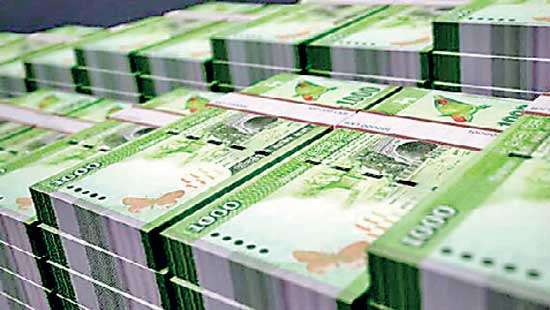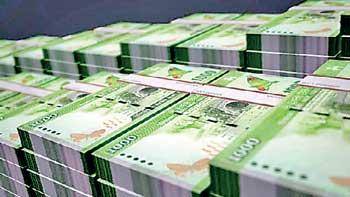Reply To:
Name - Reply Comment

 Five leading export associations have called on the authorities to tackle the pressing challenges posed by the Sri Lankan rupee’s appreciation against the US dollar.
Five leading export associations have called on the authorities to tackle the pressing challenges posed by the Sri Lankan rupee’s appreciation against the US dollar.
They also highlighted the additional hurdles, including the restrictions on foreign currency movement between commercial banks and compulsory conversion of export earnings into local currency.
“A stronger rupee means our goods become more expensive for international buyers, directly affecting our competitiveness in the global market. The exchange rate peaked at over Rs.364 per US dollar in May 2022, which led to increased operational costs, compelling us to adjust our cost base in line with the higher inflation experienced in the country,” said the Exporters Association of Sri Lanka, Joint Apparel Association Forum of Sri Lanka, National Chamber of Exporters, Tea Exporters Association, Sri Lanka Association of Manufacturers and Exporters of Rubber Products, in a joint statement to the media.
“The rapid appreciation of the rupee, with rates falling below Rs.300 per US dollar since March 19, has placed us in a precarious position, threatening the sustainability of our businesses and the livelihoods of those we employ,” the associations added.
They went on to note that despite the appreciation of the rupee, the cost of living remains high, continuing to level pressure on worker wages.
The timing of the rupee’s appreciation coincides with weak global demand for the majority of the merchandise exports and severe competition from competing countries.
During the height of the crisis, the Central Bank of Sri Lanka implemented a policy for exporters, by Gazette No.2251/42, dated October 28, 2021, to mandatorily convert foreign exchange receipts as a temporary measure. This policy enforced the conversion of all repatriated export proceeds into rupees within a stipulated time frame, except for specified exempt payments.
The associations asserted that the exporters do not have the freedom to plan the conversion as per the cash flow needs or choice of bank, often forcing conversion at an overvalued exchange rate and placing further strain on the export operations.
Accordingly, the exporters stressed it is crucial to recognise that the landscape of Sri Lanka’s foreign exchange reserves has significantly transformed and the continued enforcement of the mandatory conversion policy, considering the current positive reserves, is counterproductive.
“Persisting with this approach has placed exporters at a market disadvantage and forced them to operate on an unlevelled playing field, eroding their competitiveness. It further acts as and is viewed as an anti-export policy measure.
Export-led recovery needs to be prioritised to ensure the inflow of vital export earnings and to encourage investments in the future,” they said.
In an effort to iron out the issues, the associations asserted the need for the Central Bank to revisit and repeal the aforementioned gazette, in alignment with the evolving economic context. This appeal is made with a vision towards fostering an environment that not only enables but actively supports the growth and competitiveness of Sri Lanka’s exports, they said.
“By addressing these policy concerns, we can lay the groundwork for sustainable economic development, secure employment for our citizens and ensure the continued prosperity of our nation,” the associations said.